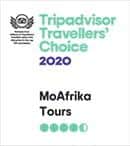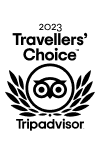Is it safe to travel to Sao Tome Principe?
IS IT SAFE TO VISIT SAO TOME PRINCIPE?
Generally, the island state of São Tomé and Príncipe is a very safe place for travellers to visit. There is very little violent crime on the islands, and violent crimes like armed robberies and rapes are still rare. Visitors can safely walk around the streets of the capital at practically any time of the day or night.
There has, however, been a rise in petty crime in recent times. Mobile phone theft was hardly heard of until recently but unfortunately, today it has become common. A few cases of theft of other items from hotel rooms, especially on Príncipe, have also been reported.
TERRORISM IN SAO TOME PRINCIPE
Sao Tome and Principe is a peaceful and safe country with currently no threat of terrorism. Visitors should just heed normal common sense and basic levels of caution and if anything should occur, it would be better just to leave the area as soon as possible.
WEATHER RELATED WARNINGS
Up until 2015 earthquakes were occurring quite frequently on the islands, causing the most deaths of the population, so visitors to the country should just be aware of the possibility and know the procedures they must follow in case of an earthquake.
There is a risk of floods, storms, and mass movement on the poorly maintained roads. Careless drivers can get caught in a landslide, so be careful if you plan on driving on any of the roads outside of the capital.
NO-GO AREAS IN SAO TOME PRINCIPE
Since Sao Tome and Principe is an overall safe country to be in, there are no areas that you should try to avoid at all or be careful in, other than the usual shady alleys, notorious neighborhoods, remote areas, and some of the city outskirts.
Be careful though around beach areas, as most petty crimes occur in such places. Make sure that you always keep your valuables safe and don’t wander off the beaten path. Never leave your belongings unattended on a beach and rather leave valuables at your accommodation venue.
Visitors should be particularly careful when visiting night-clubs, pubs, and bars located near the beaches. Rather go there with reputable company, or at least organise a safe way of returning home before you go there. Take only the basics with you and only the needed amount of cash.
CRIME IN SAO TOME PRINCIPE
Violent crime in public is almost unheard of but with an increase in tourism there has been a slight increase in crime against tourists. Roadblocks near Santana have been reported, as well as scams targeting tourists in the main city.
Theft and robberies don’t happen often in Sao Tome and Principe, but armed robberies and burglaries have been reported as to occurring more than pickpocketing. Never leave any valuables in sight especially at the beach.
Travellers must be prepared for anything – avoid large crowds of people in busy places and don’t venture too far away from your hotel during the night. Driving or walking outside the capital city during the night is not recommended at all – it is pitch dark in those areas in any case.
A tourist could be tricked by locals or by potentially rigged machines, such as ATMs. Avoid withdrawing money from an ATM, but rather do it from inside a bank, where there is decent security and the risk of being scammed or pickpocketed is much lower.
If you may fall victim to such a crime, never confront the thieves or scammers as they might be armed and dangerous.
SAFE TRANSPORT OPTIONS IN SAO TOME PRINCIPE
If you want to hire a car in Sao Tome and Principe, you’ll need to produce a valid International Driving Permit or equivalent thereof. Roads are not too crowded and relatively save in terms of reckless drivers or such. Roads are however in a poor condition, especially outside the capital city.
If possible, rather do not drive during the night, as the roads are often unlit with animals crossing frequently. Mudslides and landslips can also occur during heavy rainfall.
Streets in the capital city of São Tomé and major outside roads are paved, but potholes are common. There are no sidewalks or shoulders outside of the city, so pedestrians, bicyclists, and animals on the roads can be hazardous to the normal traffic.
Secondary and rural roads are unpaved with no street lighting outside of the capital city. Some roads are only passable with a four-wheel-drive vehicle.
Only a few kilometres of paved roads exist on the island of Príncipe too.
PUBLIC TRANSPORT IN SAO TOME PRINCIPE
Taxis are, on most occasions, fairly safe, but visitors should make sure that it has seatbelts and negotiate a reasonable rate before entering the taxi. If you are staying at a hotel, rather ask the front desk to call a taxi, as they generally use reliable providers. Hotels can also identify private drivers for hire.
The only choices of public transport are motorbike taxis (also known as motoqueiros) and taxis. Taxis are often shared; thus, you might find yourself sharing a taxi with another person going in the same direction.
RELIGION AND TRADITION
Sao Tomeans are friendly, welcoming and easy-going people. Foreigners won’t encounter problems if they observe normal rules of courtesy and do not do things they would not do at home. Be prepared, however, that locals are very direct and to the point. Although street vendors and beggars do exist, they are less common than in many other African countries and are rarely a nuisance.
LGBT RIGHTS IN SAO TOME PRINCIPE
There are no legal restrictions on same-sex sexual relations or the organisation of LGBTI events in São Tomé & Príncipe. Some societal discrimination does exist and there are no legal protections for LGBTI individuals against discrimination.
TOP SAFETY TIPS FOR SAO TOME PRINCIPE
Sao Tome and Principe is quite safe, with limited medical facilities and the petty crime the only concerns.
Usual precaution measures should be taken though, not to get in any trouble. Watch out for any scam attempts that might be tried by the locals and for any suspicious individuals that might follow you.
Avoid displaying valuable items, such as mobile phones, money, or jewelry, and don’t go out into the suburbs of the cities during the night.
If you are driving, pay increased attention to the roads, as they are filled with potholes and expect areas without lighting, and which could be dangerous at night.
Wildlife may roam on the roads, so be extra careful.
Don’t display large amounts of cash.
If you are the victim of an attempted robbery or carjacking, you are encouraged to surrender your property to avoid injury, and to report all incidents to the police.
Taking photographs of the Presidential Palace, military, or other government buildings is strictly forbidden.
AVAILABILITY OF MEDICAL FACILITIES AND MEDICINE IN SAO TOME PRINCIPE
There are no diseases, viruses, or outbreaks that should be considered when traveling to Sao Tome and Principe. Keep in mind though that, in case of a medical emergency, you might have to be transferred to either South Africa, Europe, Gabon, or Ghana for treatment, as Sao Tome and Principe’s medical facilities are limited and not able to provide treatment for certain health conditions.
HIV/AIDS AWARENESS
The rate of HIV/AIDS in Sao Tome Principe is between 1-2%, which is relatively low compared with nearby countries. There is a strong stigma against those infected on the islands and few have ever come out with their diagnosis. Often health workers have to deliver medications to homes in secret because patients are unwilling to be seen in public collecting these medications. Even with the low risk, everybody should always use protection, such as condoms.
VACCINATIONS NEEDED FOR SAO TOME PRINCIPE
The vaccines that are recommended for foreigners before entering Sao Tome and Principe are routine vaccines like MMR, diphtheria-tetanus-pertussis, chickenpox, polio, and flu shot, as well as for Hepatitis A, malaria, typhoid, yellow fever, Hepatitis B and rabies.
IS SAO TOME PRINCIPE SAFE FOR FEMALE TRAVELLERS?
Sao Tome and Principe is not exactly a safe place for solo women travelers. You may never know what can happen, especially if you are a woman and traveling alone. While the risk of something happening is very low, women should be careful and avoid venturing into any unknown areas.
Local dress code changes from place to place and social group to social group. Women should just look around and take their cue from local girls.
Stay on the beaten path and in the areas of the country that are meant for tourists and visited by them regularly. In 2011, the rape rate of Sao Tome of Principe was of 1.7 cases per 100,000 population and it has reportedly been decreasing ever since.
Women should however dress appropriately and avoid visiting any unknown areas. Keep away from the suburbs and slums and don’t travel into any low-populated regions of the cities.
IS SAO TOME PRINCIPE A SAFE DESTINATION FOR CHILDREN?
If you are traveling with your family, including your children, then you should have no worries. Just keep an eye on them and don’t let them get too far away from you, and everything should be just fine.
The only dangerous animal in the islands is the black cobra, which can be found in southern and eastern areas of Sao Tome island.
NOTE ON CORONAVIRUS
Since the beginning of 2020 visitors to any country should be aware of and help to avoid the spreading of the coronavirus. Coronaviruses are a large family of viruses found in both animals and humans. Some infect people and are known to cause illness ranging from the common cold to more severe diseases such as Middle East Respiratory Syndrome (MERS) and Severe Acute Respiratory Syndrome (SARS).
WHAT CAN A VISITOR DO TO PROTECT HIM OR HERSELF FROM THE VIRUS?
Wash your hands with soap and water or sanitiser as often as possible, since it can eliminate the virus if it is on your hands.
Cover your mouth and nose with flexed elbow or a tissue when coughing and sneezing, and discard tissues into a closed bin immediately, then clean your hands with alcohol-based hand rub or soap and water. Sneezing or coughing into your hands may contaminate objects or people that you touch.
Maintain a fair distance between yourself and other people, since coughs or sneezes from infected people may project droplets containing the virus.
If you experience some fever, cough and difficulty of breathing, immediately seek medical care.
Always practice general hygiene measures, but especially when visiting live animal markets, wet markets or animal product markets. Wash your hands with soap and potable water after touching animals and animal products, avoid touching your eyes, nose or mouth with your hands and avoid contact with sick animals or spoiled animal products.
Strictly avoid any contact with potentially contaminated animal waste or fluids on the soil or structures of shops and market facilities and avoid consumption of any raw or undercooked animal products. You should even handle raw meat, milk or animal organs with care, to avoid cross-contamination with uncooked foods, as per good food safety practices.
CONCLUSION:
Enjoy a safe holiday in Sao Tome and Principe with a reputable tour operator.
MoAfrika Tours is a leading tour operator in South Africa that offers an outstanding selection of tours to Sao Tome and Principe. We have a close association with the most reputable tour operators in Sao Tome and Principe that make safety a priority.
Be aware that U.S. Medicare does not apply overseas
Medical Insurance: Make sure your health insurance plan provides coverage overseas. Most medical care providers in São Tomé & Príncipe only accept cash payments and expect payment in advance. Even if your health insurance does provide overseas coverage, you will have to pay your medical charges at the time of service and later seek reimbursement from your insurance company.




